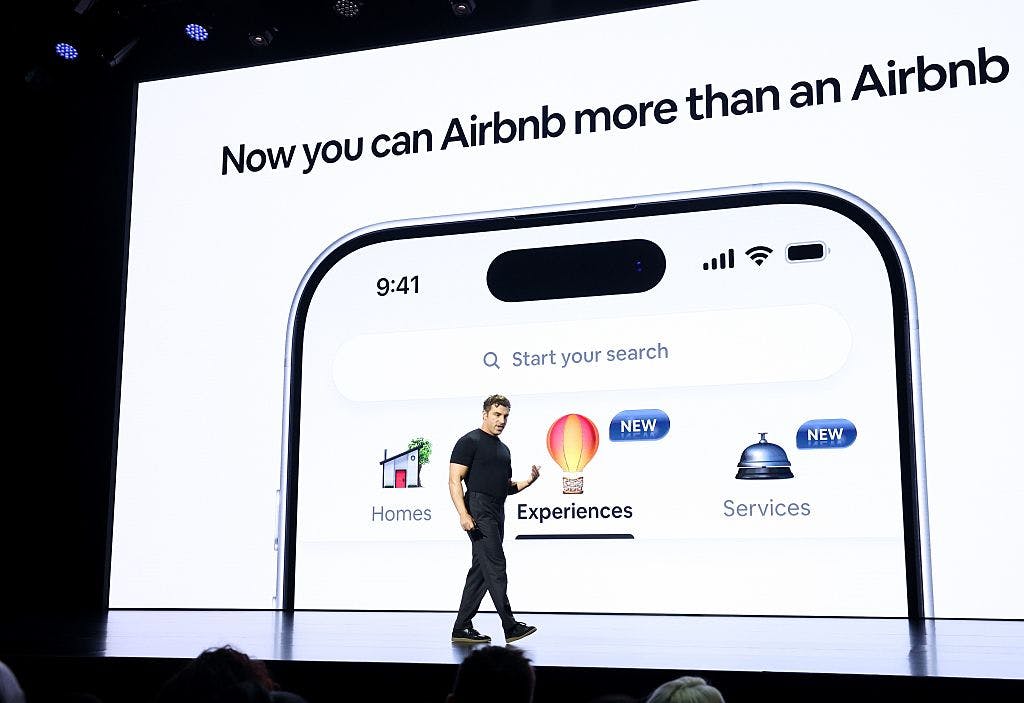Airbnb wants to be so much more than just short-term home rentals
Unlike Uber, which is hitting new highs, the vacay giant’s efforts to diversify the business haven’t paid off just yet.
Uber and Airbnb were poster children of Web 2.0 — app-first solutions to get us somewhere and ensure we had a place to stay when we got there.
Both run marketplaces, with drivers and hosts supplying the service and the platforms offering a trusted place for buyers and sellers to find each other, taking a slice of every ride, trip, and stay. And both, after burning billions of venture capital dollars, have essentially achieved what their pitch decks from the 2010s would have been promising: get big enough to go public and dominate their respective markets.
But recently, Uber’s stock is soaring, while Airbnb’s has taken a detour.
In Q1, Uber reported gross bookings of ~$42.8 billion, some $11.5 billion (~27%) of which turned into revenue for the ride-sharing giant. Airbnb, meanwhile, had a net take rate of about 9%, which meant revenue of just ~$2.3 billion, or about one-fifth of Uber’s figure.
When did Uber get so much bigger?
In short, Uber found new ways to grow, doubling down on food delivery and logistics. That’s paid off handsomely since, with $20.4 billion worth of “delivery” bookings in Q1 — just 4% less than the haul from its rides business. Perhaps even more importantly, Uber seems closer to the action on AI, thanks primarily to its collab with self-driving pioneer Waymo, which you can now order via Uber in Austin and Atlanta.
Meanwhile, Airbnb’s attempts to expand outside of its core offering have been more gradual. In May, the company announced a push into experiences and services, aiming to be a one-stop shop for everything beyond a bed that you might need to have an unforgettable trip (like a private chef, a tour, or a massage).
While that’s a nice touch that some treat-seeking holidaymakers will likely get a kick out of, it hasn’t captured investors’ imaginations the way Uber’s road map has.
